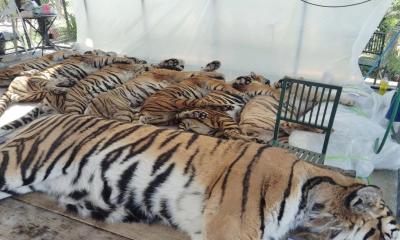The World Health Organization (WHO) chief recently said person-to-person transmission of monkeypox was ongoing and likely underestimated.
He was addressing the WHO`s Emergency Committee Thursday on the global monkeypox outbreak.
Members of the committee could announce their decision on whether or not the outbreak constitutes a public health emergency of international concern, as early as Friday.
However, Tedros Adhanom Ghebreyesus said the spread of the disease both in non-endemic and endemic countries cannot be ignored.
The first mysterious cluster appeared in the UK just over six weeks ago, when the WHO was told of a family cluster of three cases, without any recent travel taking place.
"Since then, more than 3,200 confirmed cases of monkeypox, and one death, have been reported to the WHO, from 48 countries including Nigeria, and in five WHO regions," Tedros said.
The outbreak in newly affected countries continues to be primarily among men who have sex with men, and who reported recent sex with new or multiple partners, he added.
However, in Nigeria, the proportion of women affected is much higher than elsewhere, and it is critical to better understand how the disease is spreading there, the WHO chief said.
So far this year, almost 1,500 suspected cases of monkeypox and around 70 deaths have been reported in Central Africa, primarily in the Democratic Republic of the Congo but also in the Central African Republic and Cameroon, Tedros added.
"Few of these cases are confirmed, and little is known about their circumstances. While the epidemiology and viral clade in these cases may be different, it is a situation that cannot be ignored."
The WHO chief said all countries had to remain vigilant and strengthen their capacities to prevent the onward transmission of monkeypox. "Many countries will likely have missed opportunities to identify cases, including cases in the community without any recent travel."




-20260226080139.webp)



-20260223082704.webp)










-20260225072312.webp)










-20260219054530.webp)
-20260224075258.webp)





-20260221022827.webp)